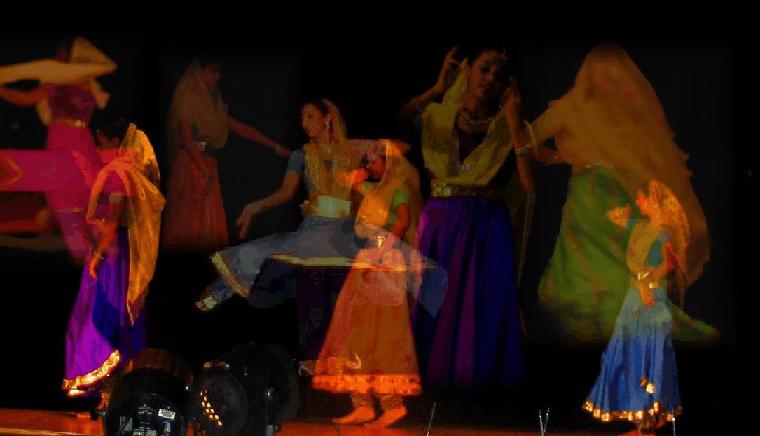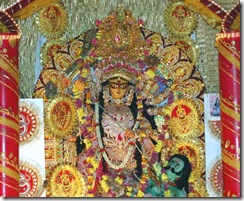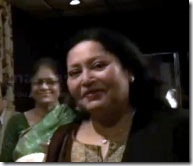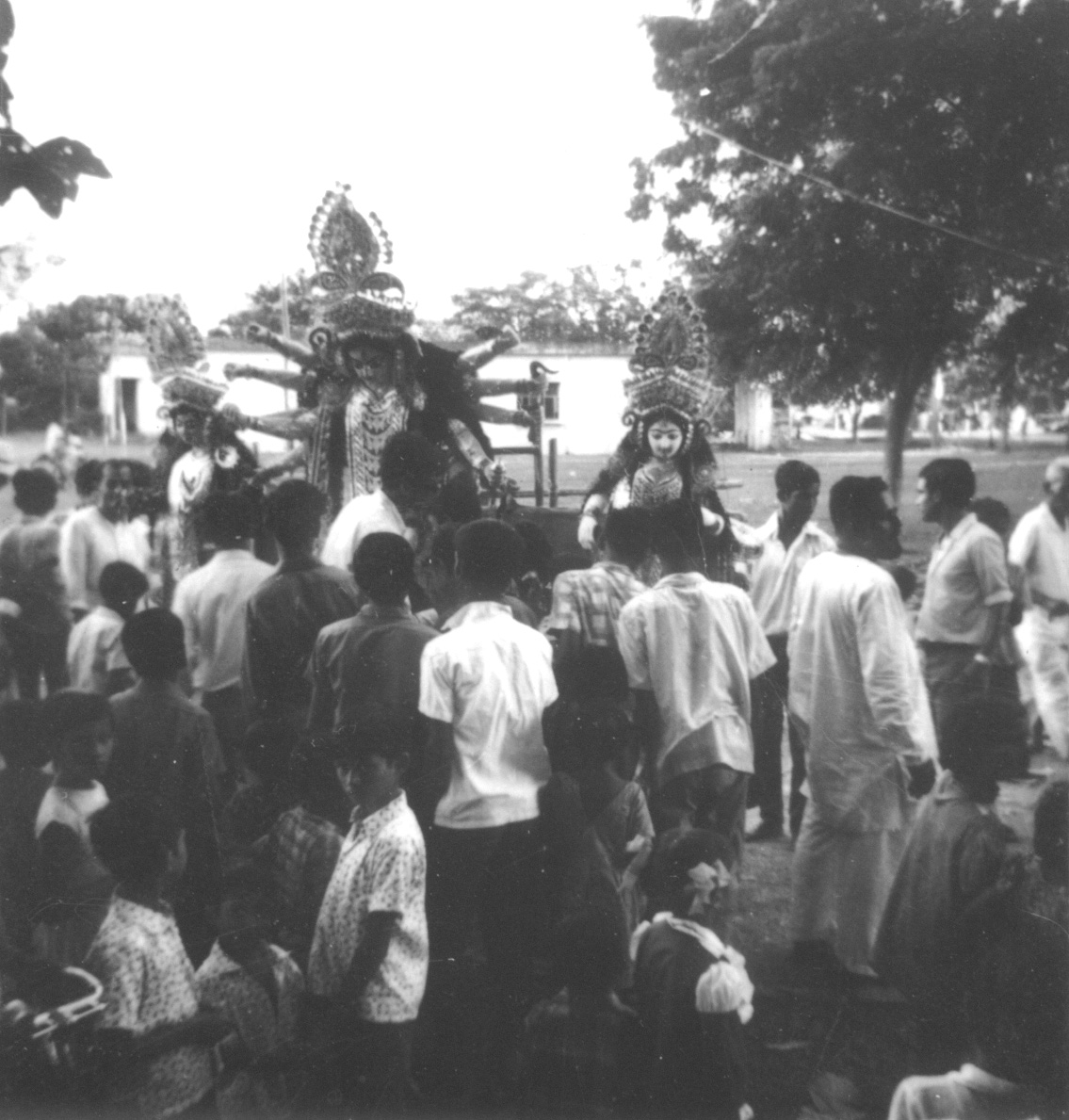 Recently I had the opportunity to watch the play “Broken Images” written by Girish Karnad, directed by Alyque Padamsee and performed by the famous film and stage actor Ms. Shabana Azmi. Girish Karnad is one of the foremost playwrights of modern India, hence any play from him raises expectations. “Broken Images” is certainly not one of his best plays although it did make its point quite strongly. It tells the story of the confessions of a mediocre Hindi writer who has become an internationally acclaimed English language celebrity author through deceit. It also tells that the image we often create to impress the outer world gets shattered inside when it is not projected in the light of truth. Continue reading
Recently I had the opportunity to watch the play “Broken Images” written by Girish Karnad, directed by Alyque Padamsee and performed by the famous film and stage actor Ms. Shabana Azmi. Girish Karnad is one of the foremost playwrights of modern India, hence any play from him raises expectations. “Broken Images” is certainly not one of his best plays although it did make its point quite strongly. It tells the story of the confessions of a mediocre Hindi writer who has become an internationally acclaimed English language celebrity author through deceit. It also tells that the image we often create to impress the outer world gets shattered inside when it is not projected in the light of truth. Continue reading
Category Archives: Generic
Mothers on Call
by Amitava Sen
My Sales Manager came running to my office. “What’s my Good Name?” he asked urgently. I did not understand his question. Indeed, I liked his name. I did not think it was a bad name and how was I supposed to know whether he had a better name? Honestly I did not care what his name was. Did Shakespeare not write somewhere that a rose smells the same despite the name you call it by? Richard Schwartz, my sales manager explained that there was a call from an Indian company who was interested in our filtration product. Richard was loath to give an incorrect answer and lose the prospect of an order for the product simply because his parents neglected to give him a better name. Suddenly it dawned on me that this man from India was asking for his Subh Naam, which translated, to Good Name. Continue reading
My sphere, My Community, My Durga Puja
by Brinda Guha
 Durga Puja is one of the most beloved times in our community – every year we get together, tempted to see all the people we haven’t seen in recent months, sometimes even years. I still remember coming to Puja since I was 4 and 5 years old, hoping to see all the Mashi’s and Kaku’s, finding every corner of the Ukrainian Center with friends to find the perfect place to play games. Then being rushed out by my parents to make sure I gave anjali, even though I had no clue what it was — I knew it made my folks feel good to know that they were giving me their blessings for another prosperous year. It was by far the most exciting time for the entire Indian community that I called “my sphere”.
Durga Puja is one of the most beloved times in our community – every year we get together, tempted to see all the people we haven’t seen in recent months, sometimes even years. I still remember coming to Puja since I was 4 and 5 years old, hoping to see all the Mashi’s and Kaku’s, finding every corner of the Ukrainian Center with friends to find the perfect place to play games. Then being rushed out by my parents to make sure I gave anjali, even though I had no clue what it was — I knew it made my folks feel good to know that they were giving me their blessings for another prosperous year. It was by far the most exciting time for the entire Indian community that I called “my sphere”.Aamaader Durga Pujo
by Sharmila Sen
 This year Kallol celebrated Durga Pujo with a new committee and with a class structure. Unfortunately, some of the enforcers of this class system had none of their own. As one long time member expressed disappointedly, “Green tag gulo holo citizender jonno aar aamra bakira holam bratyo.” Life members, other members, and those who attend the Pujo celebrations at Kallol regularly, were treated with disdain and contempt, if they had not paid up for the venerable “green card.” One attendee asked, “Amaar $150er kono daam nei?” There was no answer.
This year Kallol celebrated Durga Pujo with a new committee and with a class structure. Unfortunately, some of the enforcers of this class system had none of their own. As one long time member expressed disappointedly, “Green tag gulo holo citizender jonno aar aamra bakira holam bratyo.” Life members, other members, and those who attend the Pujo celebrations at Kallol regularly, were treated with disdain and contempt, if they had not paid up for the venerable “green card.” One attendee asked, “Amaar $150er kono daam nei?” There was no answer.
Gayatri GaMarsh Memorial Awards For Literary Excellence
by Pronoy Chatterjee
 Gayatri Memorial Awards have been established by Ananda Mandir (Somerset, NJ) to recognize authors who have demonstrated excellence in writing through their published essays, poems, short stories or plays. The awards have been made possible through a significant contribution from Jerry GaMarsh, husband of late Gayatri GaMarsh. Gayatri was an accomplished author and artist – and a key member of the editorial team of Ananda Sangbad and Anandalipi, publications of Ananda Mandir. The Gayatri Award is administered through the Awards & Recognition Subcommittee of Ananda Mandir.
Gayatri Memorial Awards have been established by Ananda Mandir (Somerset, NJ) to recognize authors who have demonstrated excellence in writing through their published essays, poems, short stories or plays. The awards have been made possible through a significant contribution from Jerry GaMarsh, husband of late Gayatri GaMarsh. Gayatri was an accomplished author and artist – and a key member of the editorial team of Ananda Sangbad and Anandalipi, publications of Ananda Mandir. The Gayatri Award is administered through the Awards & Recognition Subcommittee of Ananda Mandir.
Two cash awards will be given each year to recognize outstanding works published in North America-based literary magazines within the last five years. One award will be given to an author of Bengali works, and another will be given to an author in English. Each award will consist of $400 in cash and a certificate.
Durga Puja – Here and There
 Few minutes ago an old friend of mine called to wish me for the upcoming Durga Puja festivals. He said, “It’s Mahasasthi in Kolkata today!” I wished him back, but it occurred to me that it’s Mahasashti everywhere, not only in Kolkata. When I reminded him, he laughed and said, “Yes indeed. But our Sasthi starts on coming Friday!” And he is absolutely right. Our Pujo in New Jersey (I am referring to the Kallol Durga Pujo which we both attend), starts on October 15th, Friday evening and that’s our Mahasasthi. The thought does give me some consolation that Pujo is yet to start and we have few more days to look forward too. But my friends and family in Kolkata have started enjoying their Pujo. They have started posting photos of their favorite idols on Facebook and Orkut, sending Pujo greetings through emails and expressing their joy and merriment. ETV Bangla is taking us through the streets of Kolkata and the online newspapers and magazines giving us day by day commentary of the Pujo happenings. And we cannot deny that this does cause a bit of a tinge in our hearts. Continue reading
Few minutes ago an old friend of mine called to wish me for the upcoming Durga Puja festivals. He said, “It’s Mahasasthi in Kolkata today!” I wished him back, but it occurred to me that it’s Mahasashti everywhere, not only in Kolkata. When I reminded him, he laughed and said, “Yes indeed. But our Sasthi starts on coming Friday!” And he is absolutely right. Our Pujo in New Jersey (I am referring to the Kallol Durga Pujo which we both attend), starts on October 15th, Friday evening and that’s our Mahasasthi. The thought does give me some consolation that Pujo is yet to start and we have few more days to look forward too. But my friends and family in Kolkata have started enjoying their Pujo. They have started posting photos of their favorite idols on Facebook and Orkut, sending Pujo greetings through emails and expressing their joy and merriment. ETV Bangla is taking us through the streets of Kolkata and the online newspapers and magazines giving us day by day commentary of the Pujo happenings. And we cannot deny that this does cause a bit of a tinge in our hearts. Continue reading
Durga Puja 2010 : New Jersey Style
The time of the year is here again. The sky is blue with patches of white clouds floating lazily and the weather is cooling down. Durga Puja is here again in New Jersey. The local Bengali associations are gearing up to welcome Ma Durga with the usual pomp and cultural extravaganza, and let me share with you some information about the festivities that has come to my notice.
Like previous years, Durga Puja festival in New Jersey will be heralded in by the live Mahishashura Mardini (Mahalaya) performance at the Ananda Mandir on October 10th at 5.00am in the morning. I have been a regular attendee at this event, and I can promise you that if you can take that bold step of getting up from bed that early and drive down to Ananda Mandir, you’ll have an experience that you will never regret. Continue reading
A Panel of Bengali Playwrights
On August 10, 2010, at the Paschimbanga Bangla Academy, an interesting event took place along with my book launch ceremony. As a part of the book launch, Saptarshi Prakashan arranged for a discussion from a panel of contemporary playwrights which included Ujjal Chattopadhyay, Tirthankar Chanda, Sudipto Chatterjee and myself. The panel was moderated by Satya Bhaduri, the editor of the well known theater journal SAS. The topic of discussion was “Exchange of Ideas”. Ujjal and Tirthankar being Kolkata residents and both Sudipto and me being expatriates, the moderator essentially wanted to get the panelists view point as to how contemporary Bengali playwrights, living all around the globe, can exchange their thoughts and ideas, discuss and debate their plays and finally produce plays that enrich Bengali theater on the whole. The panelists spoke about their own ideas and convictions which may not have found a perfect answer to Satya Bhaduri’s question, but it did raise some good issues that we the playwrights and theater lovers ought to ponder on. The following video clips from the panel discussion will give you a better understanding of the proceedings of that meeting. Enjoy and don’t forget to add your thoughts below as comments.
Top Ten Requests from NABC Domestic Performers
Few weeks ago I had written about the plight of domestic performers at the North America Bengali Conferences. I had also mentioned that the current CAB president Kajal Sarkar promised to look into this issue and try to resolve the matter in future NABC meets. He also asked the domestic performers to come up with a consolidated list of “10 most important things need to be implemented in future Banga Sammelan for performance related to local artists / groups”. I volunteered to co-ordinate the effort and came up with a list based on inputs from several domestic performers at the NABC 2010. I would like to share the list with you all and maybe you can put in your comments too. I hope all Bengali organizations, who plan to host NABC in the future, would read this and take this as an important feedback from the local/domestic performers and groups. Continue reading
Why a Book of Plays?
Plays are meant to be staged. At least that’s what a playwright expects when he or she writes a play. A play or drama finds its fullest expression through the interpretations of its director and the actors. So what good is it to publish a book of plays? Mostly people who produce, direct and act in plays are typically interested in the text of the play and hence would likely be interested in a book of plays. Although it is true that some non-theater people do love to read plays just as much as some like to read stories and novels, but isn’t such a group a minority? Is it worth publishing a book for such a limited audience? These were the questions I was grappling with before I decided to go for a publication of an anthology of my plays. Continue reading
